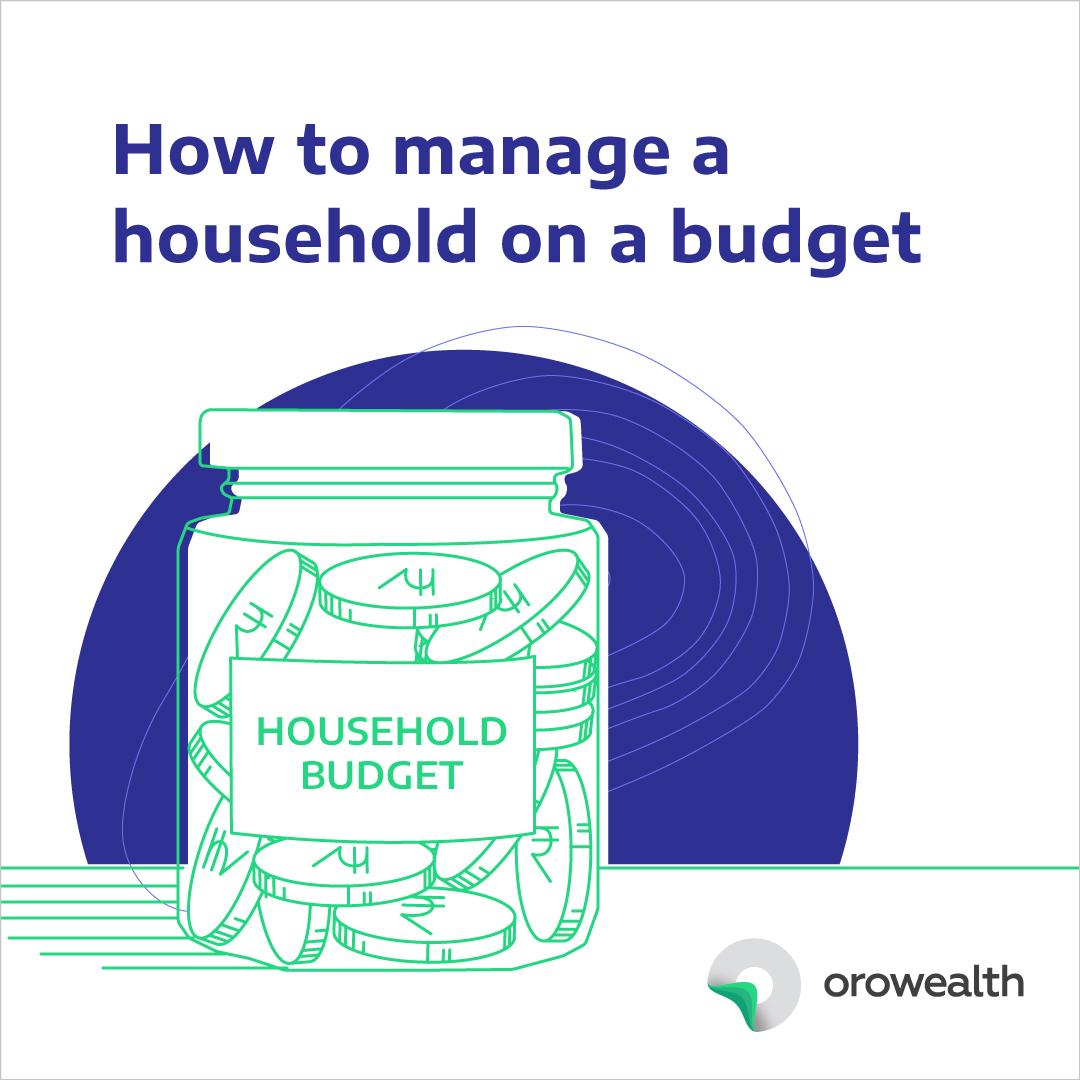How to Manage a Household on a Budget

Have you ever tried making a dish without reading its recipe? No, right. Well, budgeting is similarly crucial to running a household. Without knowing how to go about it, you won’t be able to relish the sweet taste of success. If you have been spending more than you should, budgeting will help you tighten the ropes. Not only will it give you a clarity about your spending patterns, it will also teach you to live within your means.
Budgeting is the foundation of a strong financial plan. It is like a roadmap that will lead to your financial goals. Don’t worry if you have been delaying this task because numbers overwhelm you. Follow these steps to make your budget and track your finances.
- Chart out your long term and short term goals – Financial goals vary from family to family. Renovating your house or buying a car may be on your mind. It will only remain a dream until you start saving up for the purpose. Monthly tracking will tell you where you stand on your progress.
- Focus on paying off debts – Clearing your debts will not only help in expanding your savings pool but will also provide mental peace. If you have a couple of loans, clear off the one with the highest interest rate first. You will end up paying lesser interest and thus save some money.
- Track your spending – Take out your last three months’ bills and split them category wise. Classify them under different categories like shopping, fuel, grocery etc. This activity will indicate where you have been spending too much and where you can cut down.
- Create a budget – Your spending pattern will help you create a realistic budget. Warren Buffet said, “Don’t save what is left after spending but spend what is left after savings.” This holds true for everyone. Deduct your savings from your income. Split the remaining amount into your expense buckets. To keep a better record of your expenses in the future, you can install budgeting apps on your phone. They are easy to use and will tell you if you have exhausted your budget on any category. With these apps, you won’t go overboard.
- Discuss with family – You cannot create a budget all by yourself. You need to have it approved by everyone in the family. Bring them to the table and show them your cash flows. Explain why budgeting is important and bring everyone on board. You can provide alternatives like going on a picnic instead of taking children out for the movies.
- Reduce your spending – Look at your past expenses and cut down on the categories where you would ideally like to spend less. It could mean eating out less frequently or curbing impulsive shopping. One effective way to do this is to stop using credit cards for impulsive shopping. Using debit cards or cash for your transactions will keep you in touch with reality.
- Increase your savings – Set up reminders so that you do not forget your bill payments dates. This will save you from late payment charges that are non-essential expense items. Consider becoming members at your frequently visited stores to get discounts. You can also buy groceries online as some websites often run special discounts. You can use credit cards for your essential expenses like bills and groceries so that you can earn reward points. These points carry monetary value and can be reimbursed as shopping vouchers.
- Use a list when shopping – Hypermarkets are designed in a way to lure you into buying things that you don’t need. Always make a list of the things that you need before going shopping. This will help you from buying unnecessary items.
- Treat your family – being on a budget doesn’t mean you will change your lifestyle overnight. Treat your family once in a while. Think of non-expensive ways to do this. Take your kids on a hike or on a picnic. Invite your friends over instead of eating out with them. Once you start spending consciously, you will also find newer ways to entertain.
- Revisit your budget – Every family’s needs change. The kids will grow and will have more demands. You need to revisit your budget at least once every six months to accommodate these changes. You may also find that you have been spending less on one category as per the estimated budget. Or you may get a raise at office giving you more disposable income. Reevaluate and make necessary changes.
Congratulate yourself once you have done this! You are on your way to financial happiness. Running a household is no mean task. Budgeting will ensure that you spend on the right things and also save for a better future.


No Comments